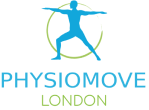
Have you ever felt anxious at the mere thought of moving your body, fearing that it might worsen your pain? Maybe you’ve been avoiding activities you used to enjoy due to thinking it might make you feel even more uncomfortable. If this resonates with you, you might be familiar with kinesiophobia, an often underestimated condition that can significantly impact your daily life.
Kinesiophobia¹ (fear of movement) is characterised by an overwhelming, irrational fear of movement or physical activity. Unlike other phobias, where individuals often recognise the irrationality of their fear, people dealing with this condition tend to view avoiding movement as a suitable response. This can lead to harmful behaviour and a decrease in overall functional capacity.
Recent years have shown a significant increase in the number of publications² on the link between chronic pain and kinesiophobia, emphasising the importance to investigate and synthesise research evidence on this topic. This statistic highlights the prevalence of the condition and emphasises the need for effective treatment strategies.
When comparing how this condition affects men and women, a study³ found that women who had higher levels of kinesiophobia were usually younger and felt stronger pain compared to those with lower kinesiophobia levels, even though they had similar pain duration. The group of women with high kinesiophobia also talked about having more trouble with daily activities, health issues, and overall life impact. However, there were no big differences in pain-related traits between men with high and low kinesiophobia levels.
To understand kinesiophobia better and help treat it, we need to know why it happens. It was discovered that past experiences of pain, trauma, or injury can make us scared to move. Your brain’s protective mechanism wants to keep you safe, but sometimes it hinders your body from healing. Not moving can make your muscles weak, your joints less stable, and you might feel more pain. Ultimately, if not treated, this fear of moving can also make you feel worried, affect how you feel emotionally and overall your life at work, home and socially.
To manage kinesiophobia and prevent its return, practical steps are crucial. Start with achievable goals, gradually facing feared movements. Celebrate small wins to boost confidence. Relaxation techniques like deep breathing and mindfulness help ease anxiety tied to movement, enhancing your mental resilience. Maintain a journal to track progress and emotions, deriving insights from your journey. Consistent exercise, guided by a physiotherapist, builds strength and confidence.
Pain management is a crucial part of this treatment. At Physiotherapy London, our skilled team employs a variety of techniques, including acupuncture, exercises, and, in severe cases, we collaborate with and refer you to pain consultants for injections or medication. Our approach is holistic, addressing both the physical and psychological aspects of kinesiophobia and our evidence-based techniques are designed to break the cycle of fear and avoidance, allowing you to rebuild strength, flexibility, and confidence.
Under the guidance of our physiotherapists, you’ll gradually engage in activities that challenge your fears in a controlled manner. By gradually increasing movement and intensity, you’ll build trust in your body’s abilities and learn that movement can be safe and empowering. We believe in equipping you with the tools to navigate your journey towards overcoming kinesiophobia and regaining an active, fulfilling life.
This cycle of fear and avoidance can be challenging to break, but acknowledging the fear and seeking appropriate help can pave the way for a brighter, more active future.
Remember, your fears are valid, but they don’t have to define you. Break free from the grip of kinesiophobia and embark on a path of healing and empowerment.
FAQ
Q: How does kinesiophobia affect daily life?
A: Kinesiophobia can lead to avoidance of physical activities, limited mobility, and decreased quality of life. It can perpetuate a cycle of fear, pain, and inactivity.
Q: Can kinesiophobia be overcome?
A: Yes, kinesiophobia can be effectively managed and overcome with the right approach. Gradual exposure to feared movements, guided by a healthcare professional, is a key step.
Q: Is seeking professional help important for kinesiophobia?
A: Yes, seeking guidance from a healthcare professional, like a physiotherapist, is vital. They can provide personalised strategies, exercises, and support tailored to your needs.
Q: Are there lifestyle changes that can support kinesiophobia management?
A: Yes, adopting a balanced approach to movement, setting achievable goals, and integrating relaxation techniques into daily life can enhance progress.
——————————————-End———————————————————————
Word Count: 718
¹ Larsson, C., Ekvall Hansson, E., Sundquist, K. et al. Kinesiophobia and its relation to pain characteristics and cognitive affective variables in older adults with chronic pain. BMC Geriatr 16, 128 (2016). https://doi.org/10.1186/s12877-016-0302-6
² Bordeleau, M., Vincenot, M., Lefevre, S., Duport, A., Seggio, L., Breton, T., … Léonard, G. (2022). Treatments for kinesiophobia in people with chronic pain: A scoping review. Frontiers in Behavioral Neuroscience, 16. https://doi.org/10.3389/fnbeh.2022.933483
³ Branstrom, H., & Fahlstrom, M. (2008). Kinesiophobia in patients with chronic musculoskeletal pain: differences between men and women. Journal of Rehabilitation Medicine, 40, 375-380. doi: 10.2340/16501977-0186
4 Comachio, J., Magalhães, M. O., Carvalho e Silva, A. P. M. C., & Marques, A. P. (2018). A cross-sectional study of associations between kinesiophobia, pain, disability, and quality of life in patients with chronic low back pain. Advances in Rheumatology, 58(1), 27. doi: 10.1186/s42358-018-0027-7


